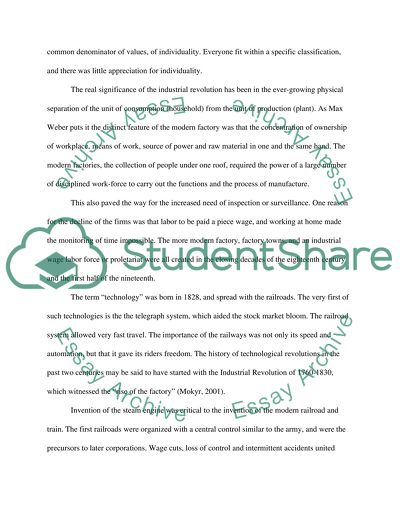Cite this document
(“Industrial Revolution Essay Example | Topics and Well Written Essays - 1250 words”, n.d.)
Industrial Revolution Essay Example | Topics and Well Written Essays - 1250 words. Retrieved from https://studentshare.org/sociology/1504012-industrial-revolution
Industrial Revolution Essay Example | Topics and Well Written Essays - 1250 words. Retrieved from https://studentshare.org/sociology/1504012-industrial-revolution
(Industrial Revolution Essay Example | Topics and Well Written Essays - 1250 Words)
Industrial Revolution Essay Example | Topics and Well Written Essays - 1250 Words. https://studentshare.org/sociology/1504012-industrial-revolution.
Industrial Revolution Essay Example | Topics and Well Written Essays - 1250 Words. https://studentshare.org/sociology/1504012-industrial-revolution.
“Industrial Revolution Essay Example | Topics and Well Written Essays - 1250 Words”, n.d. https://studentshare.org/sociology/1504012-industrial-revolution.


